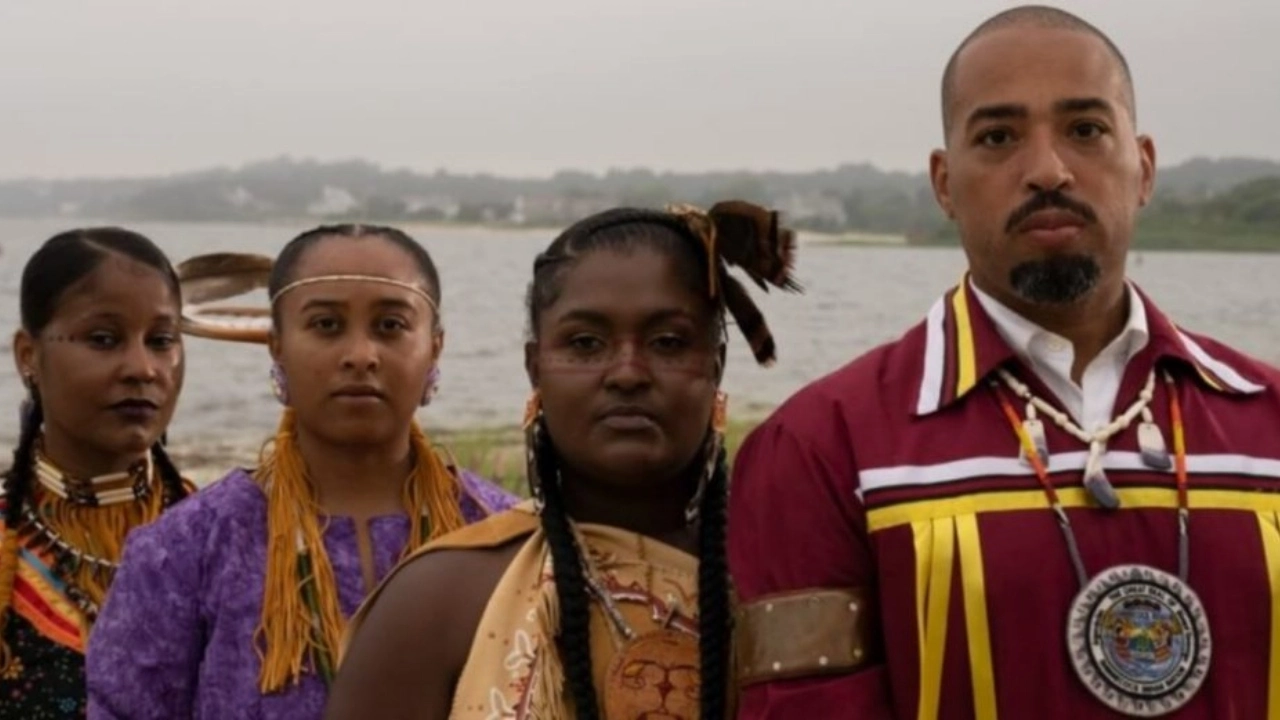When Mary Jane Oatman first met Rob Pero in 2021, it wasn’t over a boardroom table or at a formal conference – it was through their shared passion for cannabis and its potential to transform indigenous communities.
Pero, owner of CBD beverage company Canndigenous, was navigating the tricky waters of getting his products into tribal markets, while Oatman, a member of the Nez Perce Tribe, was busy featuring his brand in Tribal Hemp.
By the time 2022 rolled around, they knew it was time to take action, and the Indigenous Cannabis Industry Association was born.
“We realized tribes were really leading the way and needed a platform to showcase best practices and build a cohesive network,” said Oatman, who serves as executive director of the ICIA. She will speak at MJBizCon in December at the Las Vegas Convention Center.
The ICIA wasn’t just an idea; it was a necessity. Tribal entrepreneurs, often working outside their tribal governments, were struggling to build brands and navigate a marketplace that was both full of opportunity and fraught with challenges.
Oatman and Pero saw the good – like the first drive-thru dispensary and cannabis consumption lounge at NuWu – but they also saw the bad, including predatory practices targeting the tribal community.
What was missing was a platform to showcase best practices, advocate for indigenous sovereignty and create a cohesive network for tribal cannabis leaders.
The ICIA was formed to fill the gap, becoming a policy clearinghouse, database center and advocacy platform for indigenous communities.
ICIA is partnering with MJBizCon to introduce the Indigenous Cannabis Village on the trade show floor. The dedicated space is designed to foster economic empowerment, cultural storytelling and industry advocacy.
Advocating for social equity and inclusion
For Oatman, the ICIA is about more than cannabis – it’s about reclaiming a narrative.
Indigenous communities have a long history with plant medicines, using them as sacraments and tools for healing.
As a legacy advocate who grew up during the DARE era and witnessed her grandparents go to federal prison for growing cannabis, the work is personal. She’s driven by a belief in the power of plant medicine to heal people and communities.
The ICIA’s work intersects with broader trends in social equity and inclusion by bringing a unique perspective to the cannabis industry.
Oatman lives in Idaho, where cannabis is not legal. She believes that cannabis advocacy is about giving people permission to reconnect with the plant and its healing properties.
“A lot of people haven’t given themselves permission to have a relationship with the plant,” she said. “We are steadfast in our belief that this is a plant medicine.”
Challenges and opportunities
The path forward isn’t without its challenges. One of the biggest hurdles is balancing economic development with community well-being.
Oatman draws parallels to the gaming industry, cautioning against a “race to the bottom” that prioritizes profits over quality and integrity, which happened with casinos, cheap beer, cigarettes and gas.
“We don’t want the plant medicine to have that happen,” she said.
She advocates for community-focused initiatives, like youth outreach and education programs covering things like how to store your cannabis and youth outreach so children don’t have access, to ensure that marijuana legalization benefits everyone.
“Schools are still zero tolerance,” Oatman said. “One kid swipes a vape pen out of their mom’s purse, and the next thing you know, you have six kids expelled from school.”
There’s also the challenge of overcoming misconceptions about tribal sovereignty.
In reality, tribes operate within a complex framework of laws and regulations and the revenue generated from cannabis often goes back to essential community services.
“People think tribes can do whatever they want or that they don’t have to pay taxes,” Oatman said.
Despite the challenges, the opportunities are immense. Tribes have the chance to set a higher standard for quality and sustainability, and Oatman envisions a future where indigenous knowledge and practices influence cultivation and production, showcasing a deep connection between plant medicine and cultural heritage.
For Oatman, the most rewarding part of the journey has been creating safe spaces for dialogue and healing. She recalls roundtables and listening sessions where tribal elders shared their stories and perspectives on cannabis.
“The healing that comes from storytelling is phenomenal,” she said, noting how families torn apart by incarceration have preserved their culture and traditions through resilience.
Building partnerships and looking ahead
The ICIA is also focused on fostering meaningful partnerships between indigenous and non-indigenous businesses. Oatman encourages cannabis operators to join the ICIA network, attend webinars and learn about the tribes in their region.
She sees compacting models, like those in Washington and Minnesota, as a win-win for tribes and state-licensed operators, provided they’re negotiated thoughtfully.
Looking ahead, Mary Jane is optimistic about the role of indigenous knowledge in shaping the future of cannabis. By prioritizing sustainability, quality and education, indigenous communities can lead the way in redefining what it means to have a relationship with the plant.
Subscribe to the MJBiz Factbook
Exclusive industry data and analysis to help you make informed business decisions and avoid costly missteps. All the facts, none of the hype.
What you will get:
- Monthly and quarterly updates, with new data & insights
- Financial forecasts + capital investment trends
- State-by-state guide to regulations, taxes & market opportunities
- Annual survey of cannabis businesses
- Consumer insights
- And more!
As the ICIA continues to grow, Oatman remains committed to its mission of advocacy, education and empowerment.
“When we all come together with the plant medicine ethos rooted in education, we’re making incremental steps as well as giant strides.”
Margaret Jackson can be reached at margaret.jackson@mjbizdaily.com.
Medical Disclaimer:
The information provided in these blog posts is intended for general informational and educational purposes only. It is not a substitute for professional medical advice, diagnosis, or treatment. Always seek the advice of your physician or other qualified healthcare provider with any questions you may have regarding a medical condition. The use of any information provided in these blog posts is solely at your own risk. The authors and the website do not recommend or endorse any specific products, treatments, or procedures mentioned. Reliance on any information in these blog posts is solely at your own discretion.






